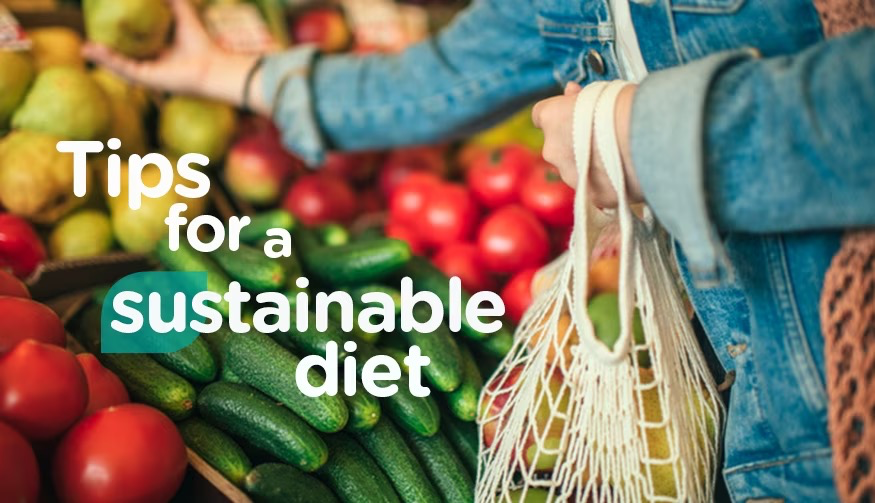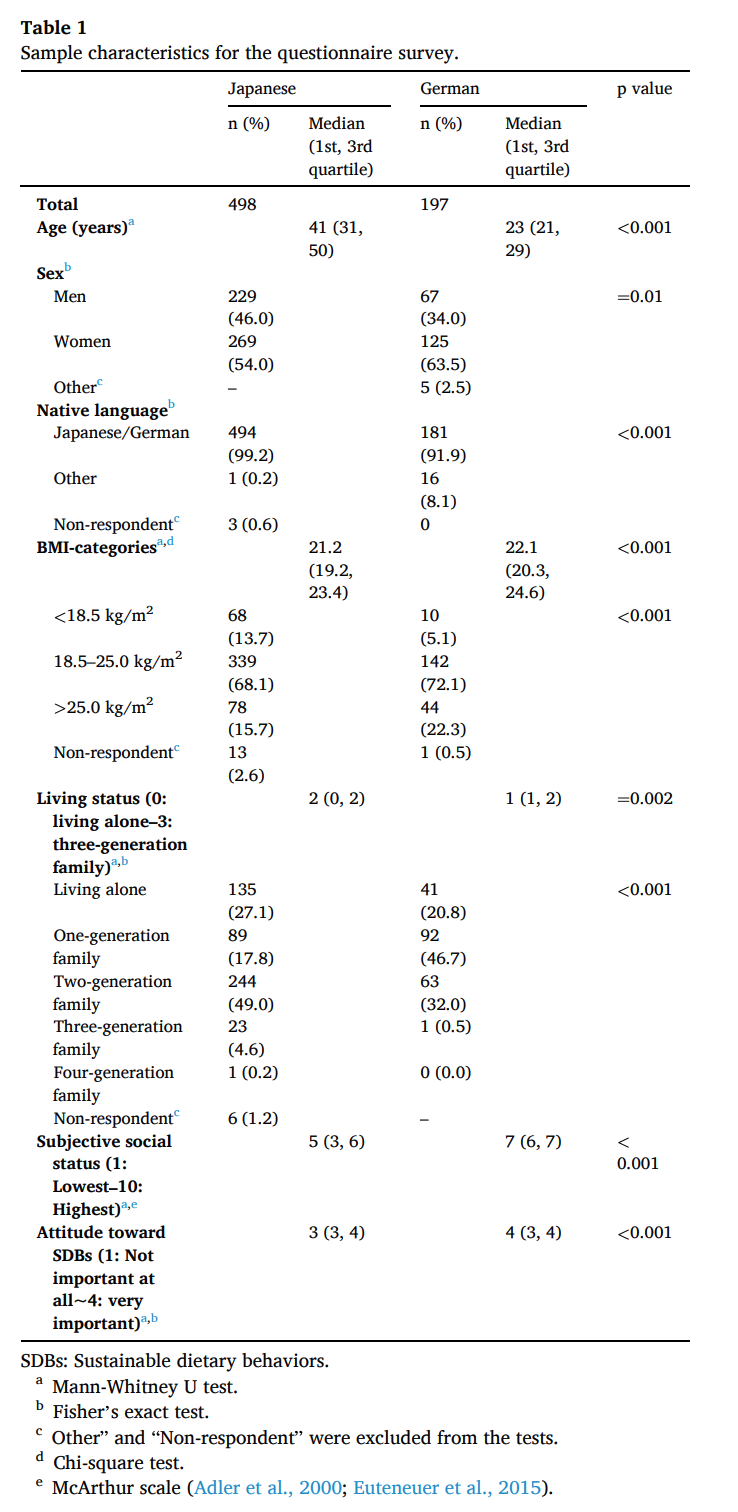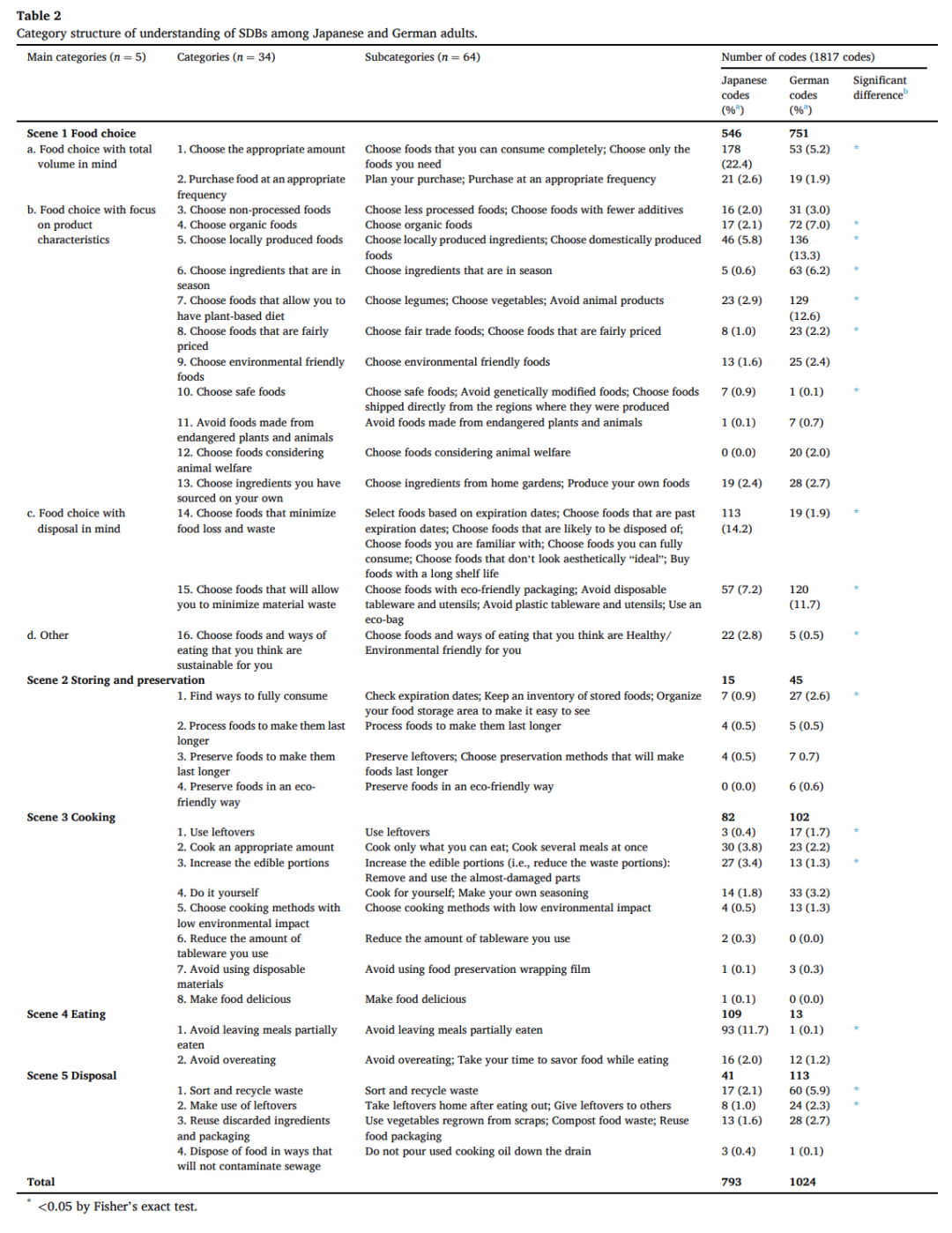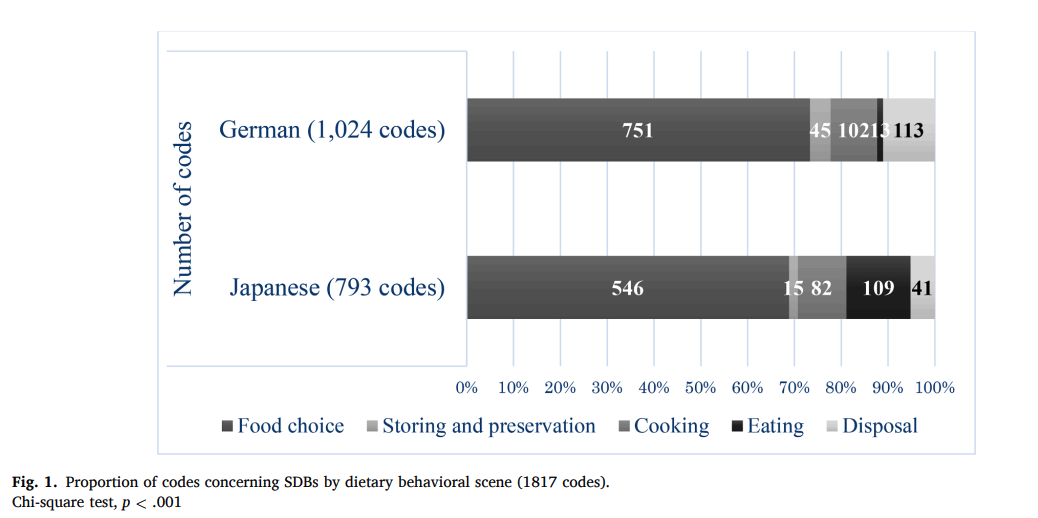 图片来源于网络(侵删)01文章信息原文标题:Understanding sustainable dietary behaviors in Japanese and German adults: A cross-cultural comparison文章作者(*通讯):Yui Kawasaki*, Sayaka Nagao-Sato, Misa Shimpo, Kahori Fujisaki, Emi Yoshii, Jana Böhnke, Rie Akamatsu, Petra Warschburger作者单位:Institute for SDGs Promotion, Organization for Social Implementation of Sustainability, Ochanomizu UniversityGraduate School of Humanities and Sciences, Ochanomizu UniversityResearch Fellow of Japan Society for the Promotion of Science (JSPS Research Fellow)Department of Food and Health Sciences, Faculty of Health and Human Development, The University of NaganoDepartment of Nutritional Management, Faculty of Nutritional Science, Sagami Women's UniversityCounseling psychology, Department of Psychology, University of PotsdamNatural Science Division, Faculty of Core Research, Ochanomizu University关键词:可持续;饮食行为;质性研究;消费者;跨文化原文链接:https://www.sciencedirect.com/science/article/pii/S092134492300464002文章导读改变消费者的饮食行为是食物生产的驱动力和减少食物浪费的直接原因,也是提高食物可持续性的关键。尽管已有大量研究对可持续饮食行为进行定义,但关于消费者如何理解不同场景下的可持续饮食行为概念的研究仍然很少,而且国家和地区之间在可持续饮食行为认知上是否存在跨文化差异尚不清楚。对此,为弥补研究差距,本研究使用定性与定量的方法对日本与德国两国的消费者对可持续饮食行为理解进行比较,以期从跨文化视角为提高全球食物可持续策略的制定提供依据。03原文摘要本研究首先定性描述日本和德国成年人在生活中可以实施的可持续饮食行为(sustainable dietary behaviors, SDBs),接着定量比较两个样本在理解可持续饮食行为方面的相似性与差异性。本研究基于2021年在线焦点小组访谈(16名日本人,其中50.0%为女性)和在线开放式调查(498名日本人和197名德国人,其中56.6%女性)中成年人对可持续饮食行为理解的数据,使用卡方检验和Fisher精确检验进行分析。最终,确定64个亚类和34个类别,并划分为食物选择、储存保存、烹饪、食用以及处置5个场景。其中,有16个类别的比例有显著差异(p < 0.05)。许多日本参与者提到了与防止食物浪费有关的可持续饮食行为,而德国参与者则更多提及与解决环境问题有关的行为。本研究加深了成年人对可持续饮食行为的认识,并有助于制定策略以改善食物的可持续性。表1 调查问卷的样本特征  表2 日本和德国成年人对可持续饮食行为理解的类别结构   图1 按饮食行为场景划分的涉及可持续饮食行为的代码占比(1817个代码)04原文信息  This study (1) qualitatively describes sustainable dietary behaviors (SDBs) that Japanese and German adults can implement in their lives, and (2) quantitatively compares similarities and differences in understanding SDBs between the two samples. Data regarding understanding of SDBs from online focus group interviews (16 Japanese, 50.0 % women) and an online open-ended survey (498 Japanese and 197 German, 56.6 % women) in 2021 were analyzed using manifest content analysis and Chi-square and Fisher's exact tests. Consequently, 64 subcategories and 34 categories were identified and grouped into five scenes: food choice, storing and preservation, cooking, eating, and disposal. Of the categories, 16 had significantly different proportions by country (p < 0.05). Many Japanese participants mentioned SDBs related to food waste prevention, while German participants mentioned behaviors related to solving environmental problems more frequently. Our study deepens adults’ understanding of SDBs and contributes to strategy development to improve food sustainability among consumers.本期编辑肖湘怡,浙江大学中国农村发展研究院,博士研究生 由于近期微信更改了订阅号的推送规则,很多朋友不能快速找到我们,其实我们每天都在推送!您可以将RCR期刊设置为星标,就能在微信订阅号中快速找到我们,查看每天订阅。 |
 |Archiver|手机版|小黑屋|雄启汇|雄启识慧云上智库:您身边的行业研究顾问
( 黑ICP备2023000012号-1 )|网站地图
|Archiver|手机版|小黑屋|雄启汇|雄启识慧云上智库:您身边的行业研究顾问
( 黑ICP备2023000012号-1 )|网站地图
GMT+8, 2025-6-8 09:57 , Processed in 2.945600 second(s), 25 queries .
Powered by Discuz! X3.5
© 2001-2025 Discuz! Team.